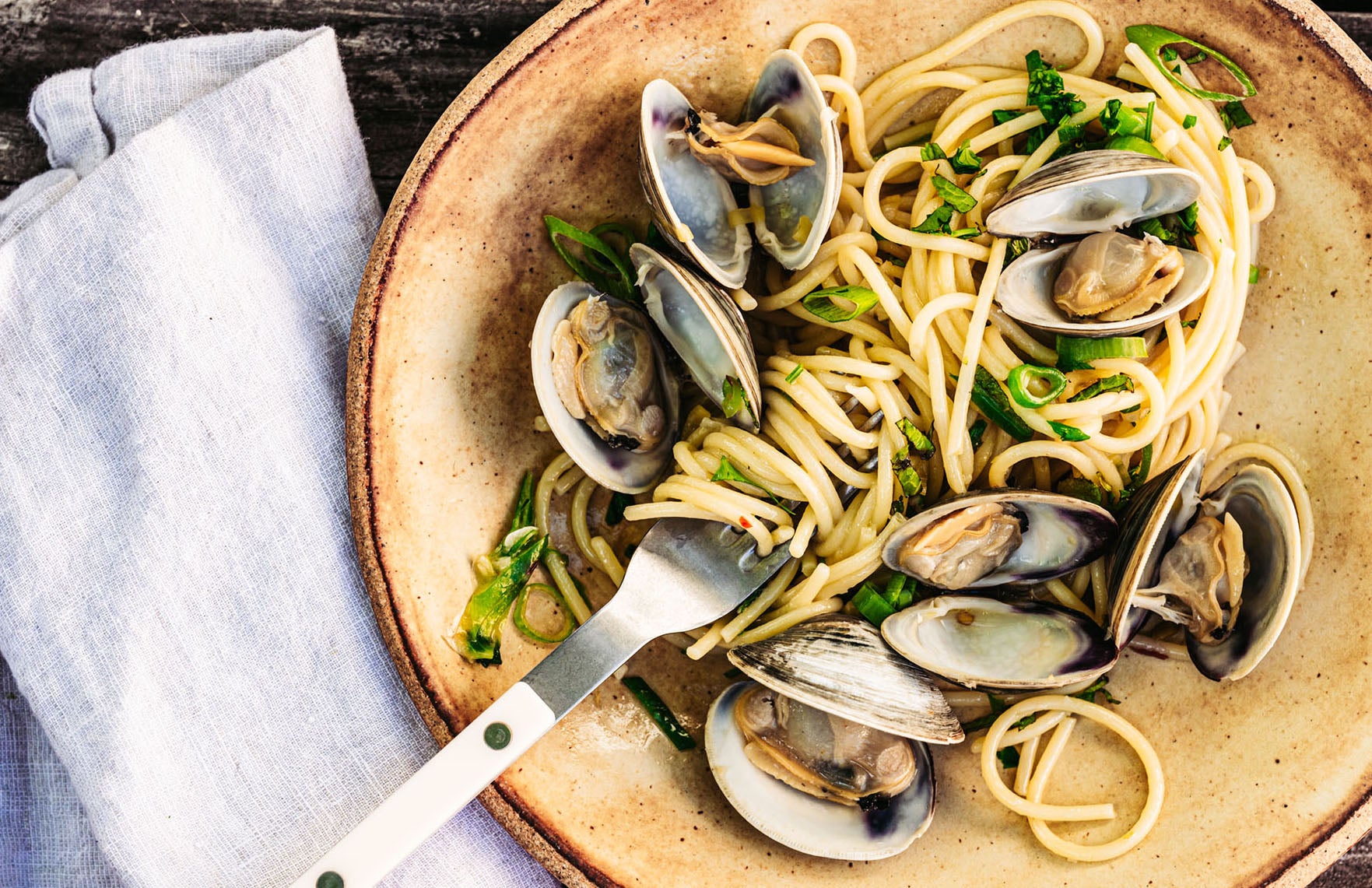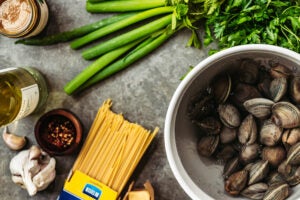
Spaghetti alle vongole gets a sassy spin from preserved lemon paste, scallions, and mint.
When done right, traditional spaghetti alle vongole is one of the greatest foods in the world. It’s rich yet fresh, briny, and garlicky—and what fun to snack on clams between bites of saucy pasta. The iconic sauce of red pepper–flecked garlic oil, white wine, and clam liquor can also be adjusted to match the season, your mood, and the ingredients you happen to have around. I’ve added cherry tomatoes for sweetness and acidity, bumped up the fishiness with anchovies, perfumed the garlic oil with fennel seeds or fresh oregano, and added texture with crunchy bread crumbs.
Even beloved classics deserve a shake-up. And while the traditional white wine sauce needs no improvement, there’s a springtime play for it with a complex acidic kick from preserved lemon paste and a bright, herbaceous one-two punch from spring onions and mint. The spring onions bring a sweet and grassy allium flavor, while the mint brings its fresh, aromatic bite. (And if you can get your hands on hyperseasonal ramps or green garlic, both can be delicious substitutes for some of the garlic and scallion here.) Think: spaghetti and clams, but for light-jacket-wearing, cherry-blossom-peeping, farmers’-market-grazing days.

If you’ve never cooked with preserved lemon paste, it’s like adding a hit of funky, savory tang to whatever you’re making. Preserved lemons, a central ingredient from the Middle Eastern and North African pantry, lend an acidity way more interesting than fresh lemons alone can. They are essentially whole lemons fermented in salt, so the days of aging add seasoning and umami, too. I love New York Shuk’s preserved lemon paste, but you can also produce your own paste by blitzing homemade or jarred preserved lemons in a food processor until smooth. I’m leaving the amount of preserved lemon paste in this recipe flexible because the salinity and acidity they contain can vary considerably—taste your paste, start with a tablespoon or so, and adjust as you go.
A note on the timing of cooking this dish: Personally, I would drop my pasta in the water to cook just as I was bringing my wine up to a simmer—leaving myself enough time to steam open and remove the clams from the pot and transfer the super al dente spaghetti straight from the boiling water to the sauce with my tongs. If this multitasking dance sounds a bit stressful, I understand. Simply cook your spaghetti, reserve a bit of pasta water, and strain and set the pasta aside in the colander until you’re ready to add it to the clam sauce.